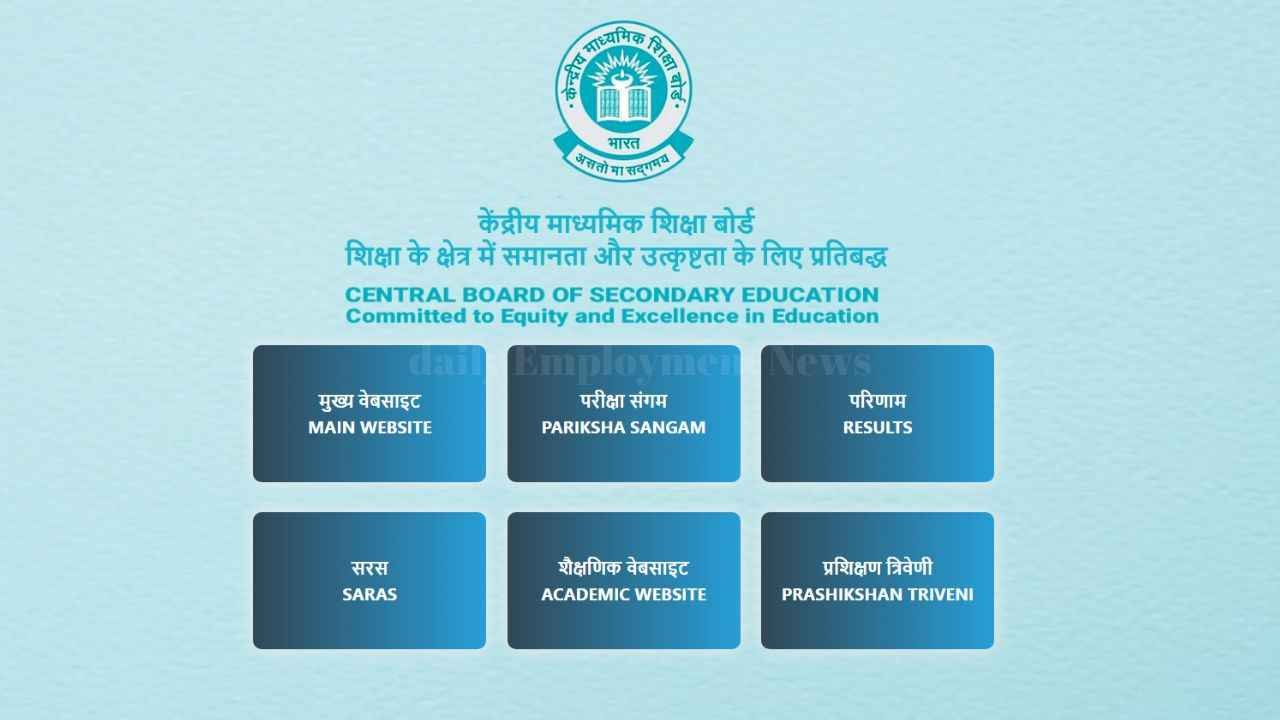Big update on CBSE Exam, CBSE will conduct open book exam soon. Read merits and demerits of OBE
CBSE Board Exam Big Update: CBSE may very soon conduct open book exam for children from 9th to 12th. In this update students can take books and notes to the exam hall. A big change can be seen in India’s education system. Important Part of this change is the concept of ‘open book exam’.
Recently, the Central Board of Secondary Education (CBSE) has announced to start a pilot program of open book exam for classes 9th to 12th.
This CBSE news is special for students and teachers. Under CBSE open book exam, students will be able to use their books, notes or any other study material during the exam. So students can find and write answers to the questions asked in the board exam from books and notes.
Big Update on CBSE Board Exam: Summary
10 Major Key Points of OBE CBSE Open Book Exam
1. CBSE is considering Open Book Examinations (OBE) for classes 9 to 12, sparking debates about its feasibility and effects on education.
2. The proposal aligns with the recommendations of the new National Curriculum Framework introduced last year.
3. A pilot project is scheduled to assess OBE’s viability in selected schools and subjects, aiming to reduce student stress and unfair practices like cheating.
4. Critics question infrastructure readiness and practical implementation challenges despite potential benefits in fostering critical thinking.
5. Experts suggest a timeline of 5 to 8 years for full OBE implementation across classes 10 to 12, with careful preparation and infrastructure development.
6. Parents express concerns about additional burdens on students and the need to purchase specific textbooks for OBE.
7. The pilot run will target English, Mathematics, and Science for lower classes and English, Mathematics, and Biology for higher classes to gauge student performance and gather feedback.
8. OBE focuses on assessing comprehension, analysis, and application of concepts rather than memorization, promoting higher-order thinking skills.
9. CBSE plans to finalize the OBE pilot’s design and development by June, seeking guidance from Delhi University’s experience with open book tests during the pandemic.
10. Past experiments like Open Text-Based Assessment (OTBA) inform current discussions, emphasizing the importance of high-quality textbooks and teacher involvement in OBE trials.
What exactly is an open book exam?
During the Corona epidemic, open book examination was also conducted in Delhi University.
It is being claimed that open book exams can help in getting rid of rote learning to some extent. Some students often appear in the exam by rote learning instead of understanding the topic. Such students focus only on getting good marks in the exam and not on learning or understanding anything.
With the help of open book exam, students will concentrate more on understanding the topic. Their power of thinking and understanding will increase. However, this will be possible only when the children prepare for that subject in advance.
Merits and Demerits of OBE
What are Open Book Examinations (OBE)?
OBE allows students to refer to their books and notes during exams, focusing on understanding, analysis, and problem-solving rather than memorization.
Why is CBSE considering OBE?
CBSE aims to reduce student stress, promote critical thinking, and mitigate unfair practices like cheating through OBE.
What subjects will be included in the pilot OBE?
The pilot run will cover English, Mathematics, and Science for classes 9 and 10, and English, Mathematics, and Biology for classes 11 and 12.
How will OBE impact students and parents?
While OBE may reduce exam stress, concerns about additional burdens on students and the need to purchase specific textbooks have been raised by parents.
When will OBE be fully implemented, and what are the key considerations?
Experts suggest a timeline of 5 to 8 years for full OBE implementation, emphasizing the need for careful preparation, infrastructure development, and equitable access to resources.
Get latest news on Education along with updates on Board Exams and Competitive Exams at Daily Employment News. Also get latest Job updates on Employment News.


As both a mother and a teacher, I vehemently disagree with the decision to implement open book tests. This method undermines true understanding, promotes rote learning, and creates an unfair advantage. I urge reconsideration for a more equitable assessment approach.